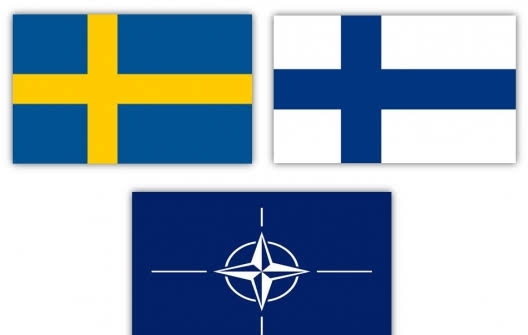Sweden and Finland are preparing for a potentially historic decision “before midsummer” on whether to apply to join NATO as a deterrent against Russian aggression.
Sweden and Finland are small countries with limited resources, but they contribute to NATO operations forces that not only match alliance training, equipment, and leadership, but are also sometimes even close to best in class. Besides, Sweden and Finland also have considerable “soft power,” as progressive nations committed to multilateralism, peace building, human rights, and development.
Finland a nordic nation of 5.5 million has traditionally been militarily non-aligned, in part to avoid provoking its eastern neighbour, with which it shares a 1,300 kilometre (830 mile) border.
But Russia’s invasion of Ukraine on February 24 saw public support for joining NATO double from 30 to 60 percent, according to a series of polls.
“Never underestimate the capacity of Finns to take rapid decisions when the world changes,” former Finnish prime minister Alexander Stubb told AFP.
Himself a long-time NATO advocate, Stubb now believes Finland making a membership application is “a foregone conclusion” as Finns re-evaluate their relationship with their neighbour.
Next week a government-commissioned national security review will be delivered to parliament, the Eduskunta, to help Finnish MPs make up their own minds before it is put to a vote.
“We will have very careful discussions but not taking any more time than we have to,” Prime Minister Sanna Marin told a news conference on Friday.
“I think we will end the discussion before midsummer,” she added.
“My guess is that the application will be filed sometime during the month of May” in time for the June NATO summit in Madrid, Stubb said.
- Advertisement -
Finland declared independence in 1917 after 150 years of Russian rule, only for its vastly outnumbered army to fight off an attempted Soviet invasion during the Second World War inflicting heavy losses on the Red Army.
Finnish leaders agreed to remain neutral during the Cold War in exchange for guarantees from Moscow that it would not invade.
The country’s forced neutrality to appease its stronger neighbour coined the term “Finlandization”.
Finland has remained outside the transatlantic military alliance, and despite some cuts after the Cold War it has focused on maintaining well-funded defence and preparedness capabilities.
“We’re able to mobilise 280,000 to 300,000 men and women within a matter of days,” Stubb said, adding that 900,000 reserves could also be called up.
Last week Finland’s government agreed a 40-percent hike in defence spending by 2026, to further strengthen the country’s position.
Last week Finland’s government agreed a 40-percent hike in defence spending by 2026, to further strengthen the country’s position.
“We have walked a long way when it comes to our security policies, and they have worked so far,” said Centre Party MP Joonas Kontta.
Like the majority of his parliamentary colleagues, the 32-year-old used to think that NATO membership was “something that we don’t need at the moment”.
But Russia’s invasion “changed something in Europe in a way that can’t be changed back”, he told AFP, and Kontta recently announced that he now believes it is time to seek to join the alliance.




Comments are closed.